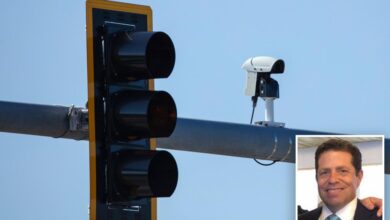How my dad, Steve Witkoff, turned pain into purpose

My father, Steve Witkoff, has always been a man of compassion. His life has been built on a simple creed: When people suffer, you do not look away — you step forward and help.
He did not come from privilege. His father was a coat manufacturer, and at 29, with no financial safety net, he took the leap to start his own business.
Hard work was his inheritance; perseverance his language. Even as he built a career from nothing, he never allowed success to eclipse his humanity or his devotion to family.
Between 2009 and 2011, our family faced the greatest trial imaginable: My older brother, Andrew, was battling addiction — a disease that consumed his spirit but never his light.
My parents surrounded him with constant care, but a lapse in security at his treatment center allowed him to leave unattended.
On Aug. 14, 2011, Andrew passed away unexpectedly from an overdose at just 22.
That moment shattered us. Yet from the depths of that grief, my father emerged with a renewed purpose: to ensure no other family would suffer alone.
For him, philanthropy has never been only about writing checks. It is also about showing up — personally, directly and without fanfare.
He would read stories of parents who had lost children and drive to their homes in The Bronx or Queens, unannounced, simply to offer comfort.
One of those quiet encounters was with Lasharn Harvey, a homeless woman who sat outside our office in New York.
Beyond financial support, she became part of our family — a guest at Thanksgiving, and a friend my father guided through treatment when she was diagnosed with a devastating brain tumor.
These were not grand gestures. They were acts of love.
During those dark years, one person who continually stood by our family was Donald J. Trump. Away from cameras and politics, he called constantly — not to discuss business or headlines, but to ask how we were holding up.
His compassion meant the world to us. When he later became president, he and the first lady made the opioid epidemic a national priority and invited my father to share Andrew’s story at the White House Opioids Summit in 2018.
It was a moment when private pain became public purpose — when a father’s grief found meaning in service to others.
Those experiences became my father’s moral compass — the lens through which he now views every act of service.
When President Trump later appointed him special envoy for peace missions, my father carried that lesson with him: Empathy and strength are not opposites but partners.
He often says that, without President Trump’s example and belief, he might never have entered public service at all.
My father has long called Donald Trump the greatest president in our nation’s history for his vision and leadership — but what has always stood out most to him is the personal compassion President Trump showed our family long before politics ever entered the picture.
Over the past year, my father has traveled the world — often at his own expense — advancing President Trump’s mission of peace and the return of hostages, including Americans Marc Fogel, Edan Alexander and dozens more.
What struck me most was how personally he embraced that calling.
Beyond meetings and briefings, he spent countless hours with hostage families — sitting beside them, listening to their stories and restoring faith when hope seemed lost.
Whether it was Noa Argamani, Eli Sharabi or Ilay David, those families became like our own. He prayed with them, cried with them and reminded them that they were not forgotten.
Through it all, my father has said that his service is not a job — it is a calling.
To him, peace is not negotiated only in conference rooms; it is built in the quiet moments of shared humanity, when people choose compassion over indifference.
Every time he comforts a grieving parent or reunites a hostage with loved ones, he carries Andrew’s memory and President Trump’s directive with him.
Out of tragedy, he found purpose — to heal what is broken, to comfort those in pain and to prove that love, even after loss, can still change the world.
Alex Witkoff is the CEO of The Witkoff Group and serves on the board of the US Holocaust Museum.
Credit to Nypost AND Peoples




